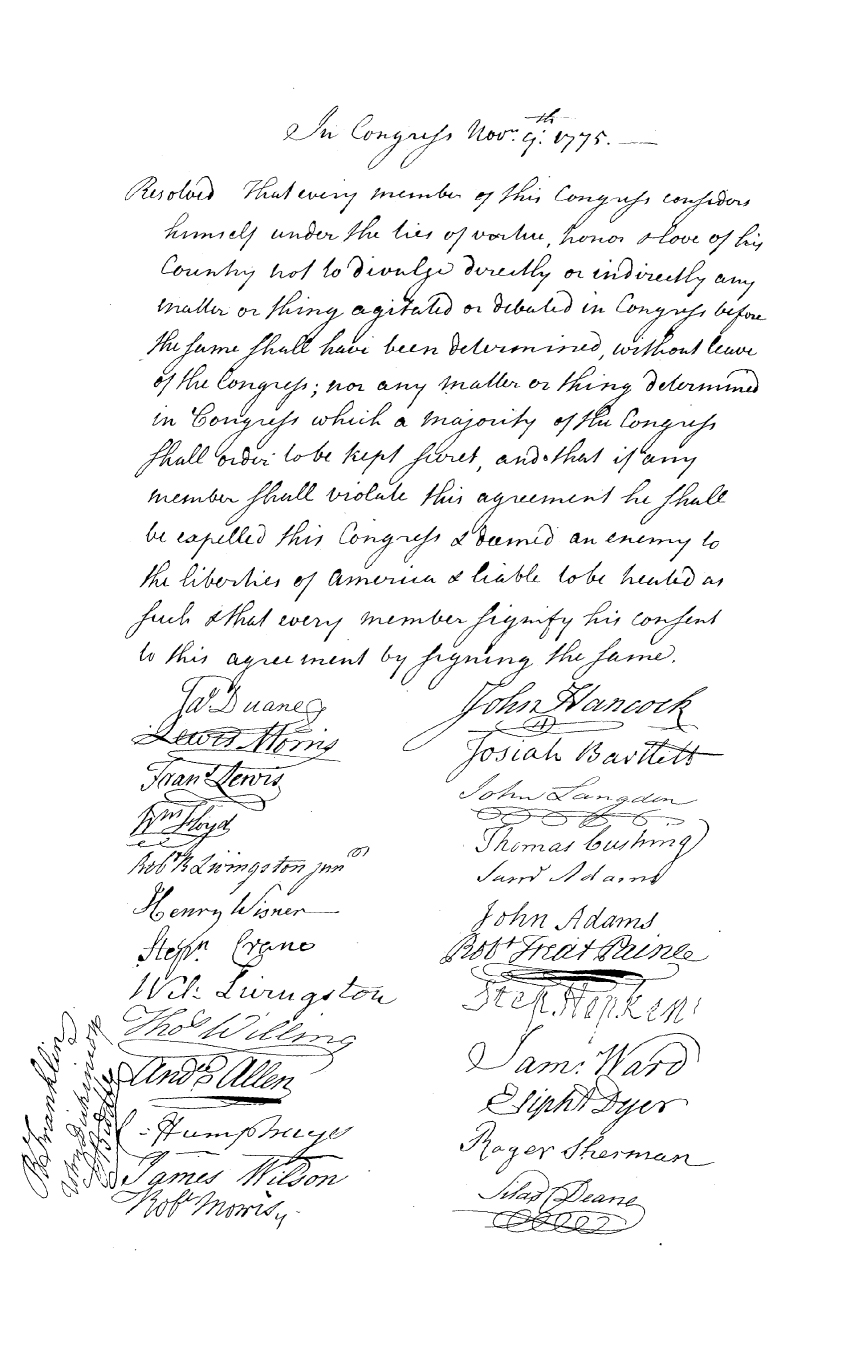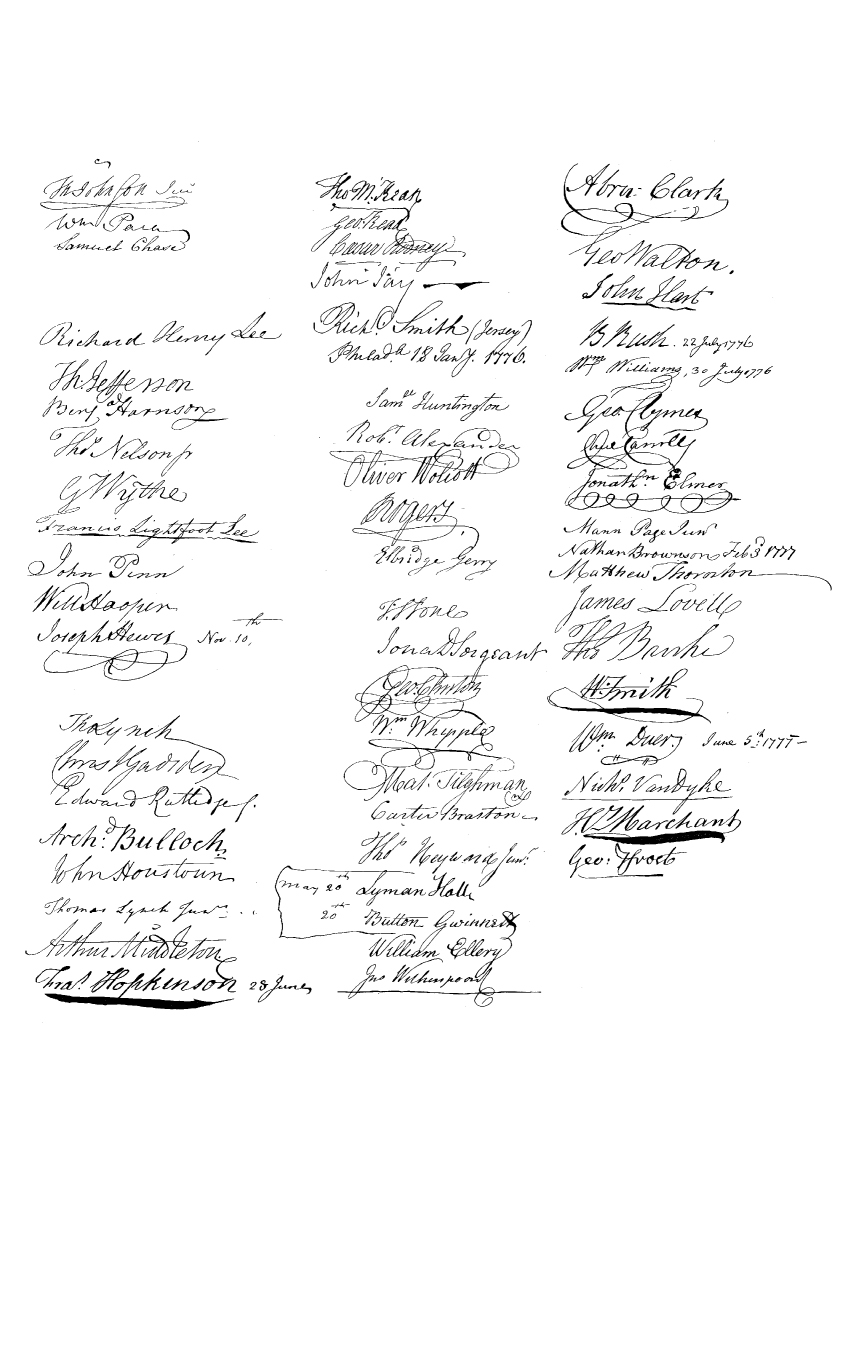Difference between revisions of "Agreement of Secrecy"
| Line 276: | Line 276: | ||
[[Category:Letters and Papers]] | [[Category:Letters and Papers]] | ||
[[Category:Wythe's Signature]] | [[Category:Wythe's Signature]] | ||
| + | [[Category:PROOFED]] | ||
Revision as of 09:52, 14 January 2015
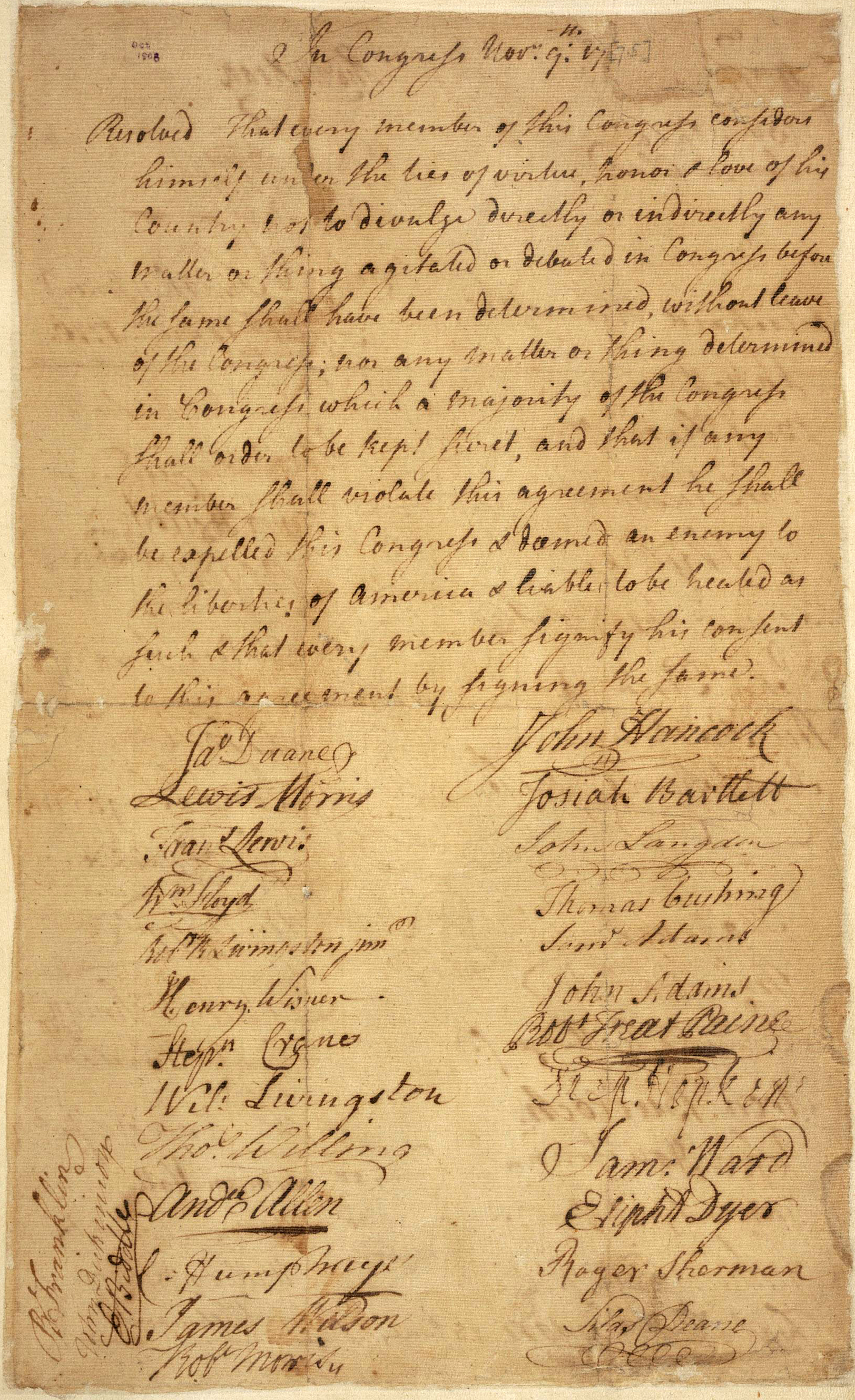
On Tuesday morning, September 6, 1774, the First Continental Congress, convened in Philadelphia's Carpenter's Hall, passed a resolution to keep their proceedings secret:
Resolved, That the door be kept shut during the time of business, and that the members consider themselves under the strongest obligations of honour, to keep the proceedings secret, until the majority shall direct them to be made public.
This resolve was reiterated on May 11, 1775 by the Second Continental Congress, by that time reconvened at the Pennsylvania State House in Philadelphia.[1] John Adams mentions he is under an "engagement of secrecy" in a letter to Elbridge Gerry, dated November 5, 1775:
Dear Sir:
I am under such restrictions, injunctions, and engagements of secrecy respecting every thing which passes in Congress, that I cannot communicate my own thoughts freely to my friends, so far as is necessary to ask their advice and opinions concerning questions, which many of them understand much better than I do. This, however, is an inconvenience which must be submitted to for the sake of superior advantages.[2]
Edmund C. Burnett notes an increase in references to secrecy in Congressional correspondence in 1775:
The frequent mention since early in October of the requirement of secrecy indicate that the resolve of May 11 had been broken by members of Congress and that pressure of some sort had been brought to bear upon them to induce them to observe this obligation. On Nov. 9 a resolution of a very rigid character was adopted, which members were required to sign and the violation of which incurred the penalty of expulsion from Congress and denunciation as an enemy to the liberties of America.[3]
The "rigid" resolution adopted by Congress on November 9, 1775 was officially endorsed as an "Engagement of the Members to Secresy." The manuscript, now in the United States National Archives, is in the handwriting of secretary Charles Thomson, signed by the members then present. Other delegates signed the agreement as they arrived, with the last signatures appended in June, 1777. George Wythe and the other members of the Virginia Delegation—Richard Henry Lee, Thomas Jefferson, Benjamin Harrison, Thomas Nelson and Francis Lightfoot Lee—probably signed on or about the 13th of September, when their credentials were presented to and approved by Congress.[4]
Burnett also notes the difficulty in ascertaining the dates and order of signatures to the document:
A facsimile of the document is in Force, Am. Arch., fourth ser., III. 1915, and in Warren-Adams Letters, I. 126. The resolution was signed by members as late as June, 1777, the last signature to which a date is attached being that of William Duer, June 5, 1777. It is probable that the three remaining signatures, those of Nicholas Van Dyke, Henry Marchant, and George Frost, were appended the same day. Duer had been in attendance since Apr. 7, 1777, Van Dyke only since June 2, while Frost had attended May 16, Marchant May 31.[5]
The increasing pressure for secrecy during 1774-1775 was in response not only to information leaked in communications from delegates,[6] but to King George III's "Proclamation of Rebellion" on August 23, 1775, following the Battle of Bunker Hill. The royal proclamation declared Congress's activities traitorous, and commanded all British officers and loyal subjects to "transmit to one of our principal Secretaries of State, or other proper officer, due and full information of all persons who shall be found carrying on correspondence with, or in any manner or degree aiding or abetting the persons now in open arms and rebellion against our Government."
Contents
Manuscript text, 9 November 1775
Page 1
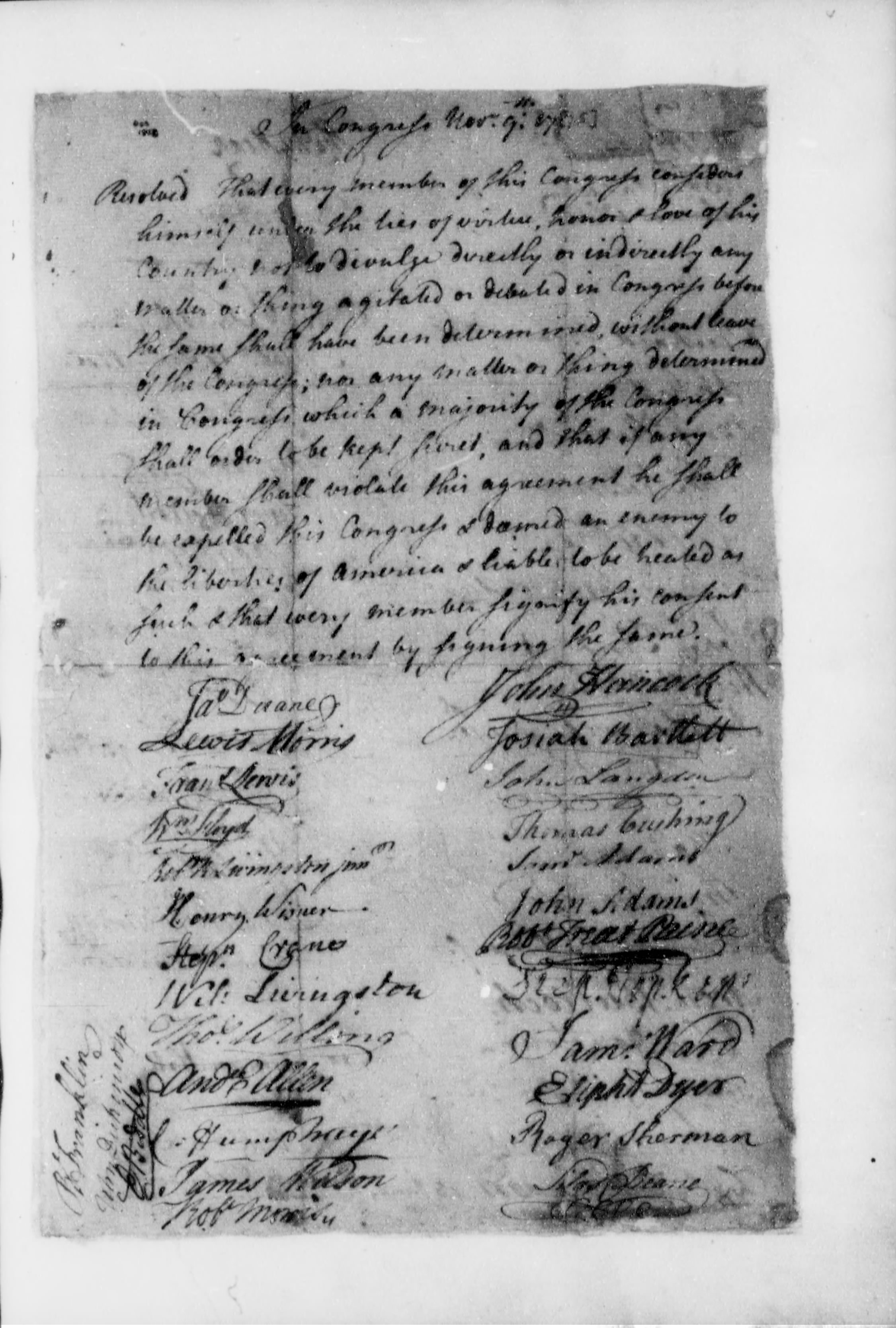
In Congress Nov.r 9.th 17 [75]
Resolved That every member of this Congress considers himself under the ties of virtue, honor and love of his Country not to divulge directly or indirectly any matter or thing agitated or debated in Congress before the same shall have been determined, without leave of the Congress; nor any matter or thing determined in Congress which a majority of the Congress shall order to be kept secret, and that if any member shall violate this agreement he shall be expelled this Congress and deemed an enemy to the liberties of America & liable to be treated as such, & that every member signify his consent to this agreement by signing the same.
B Franklin
John Dickinson
E Biddle
Jas Duane
Lewis Morris
Frans Lewis
Wm. Floyd
Robt R Livingston junr
Henry Wisner
Step.n Crane
Wil: Livingston
Tho.s Willing
And.w Allen
C: Humphreys
James Wilson
Robt Morris
John Hancock
Josiah Bartlett
John Langdon
Thomas Cushing
Saml Adams
John Adams
Robt Treat Paine
Step. Hopkins
Sam. Ward
Elipht Dyer
Roger Sherman
Silas Deane
Page 2
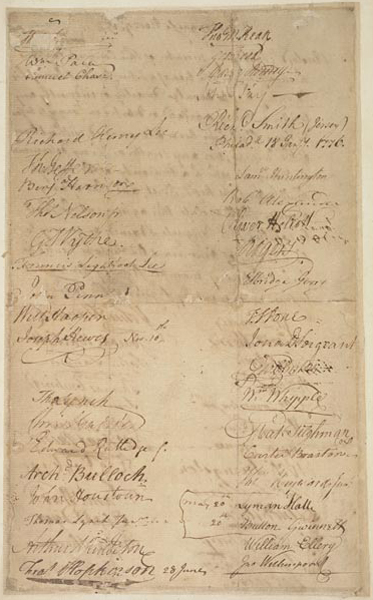
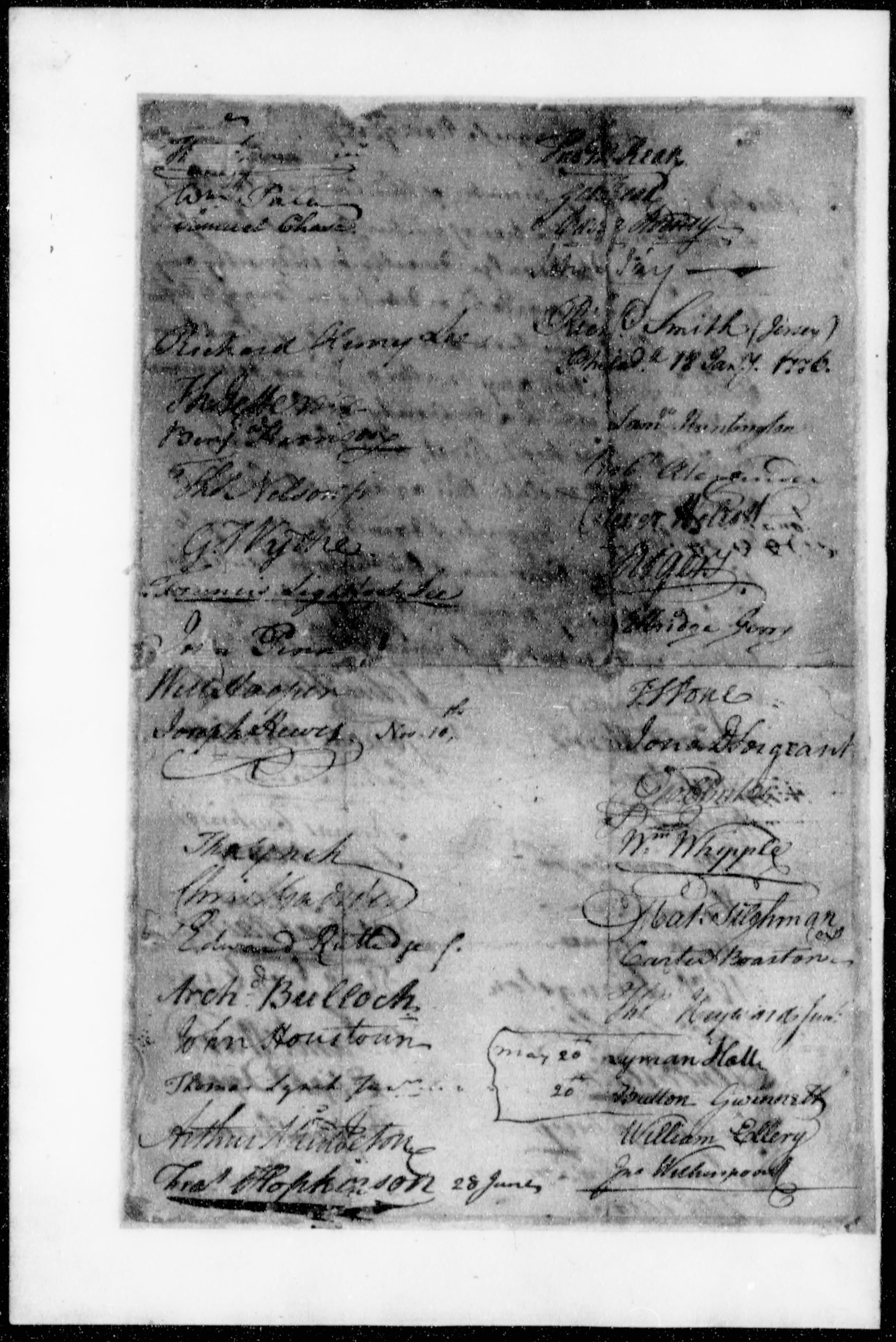
Th Johnson Junr
Wm Paca
Samuel Chase
Richard Henry LeeTh: Jefferson
Benja Harrison
Thos Nelson jr
G Wythe
Francis Lightfoot Lee
John Penn
Will Hooper
Joseph Hewes Nov. 10.th
Tho LynchChrist Gadsden
Edward Rutledge
Arch:d Bulloch
John Houstoun
Thomas Lynch Junr
Arthur Middleton
Fras. Hopkinson 28 June
Thos M:Kean
Geo: Read
Cæsar Rodney
John Jay
Rich:d Smith (Jersey)
Philad.a 18 Jany. 1776.
Saml HuntingtonRob.t Alexander
Oliver Wolcott
J Rogers
Elbridge Gerry
T: StoneJona D Sergeant
Geo: Clinton
W:m Whipple
Mat. Tilghman
Carter Braxton
Thos Heyward Jun:r
{ May 20th Lyman Hall
{ 20th Button Gwinnett
William Ellery
Jno Witherspoon
Page 3
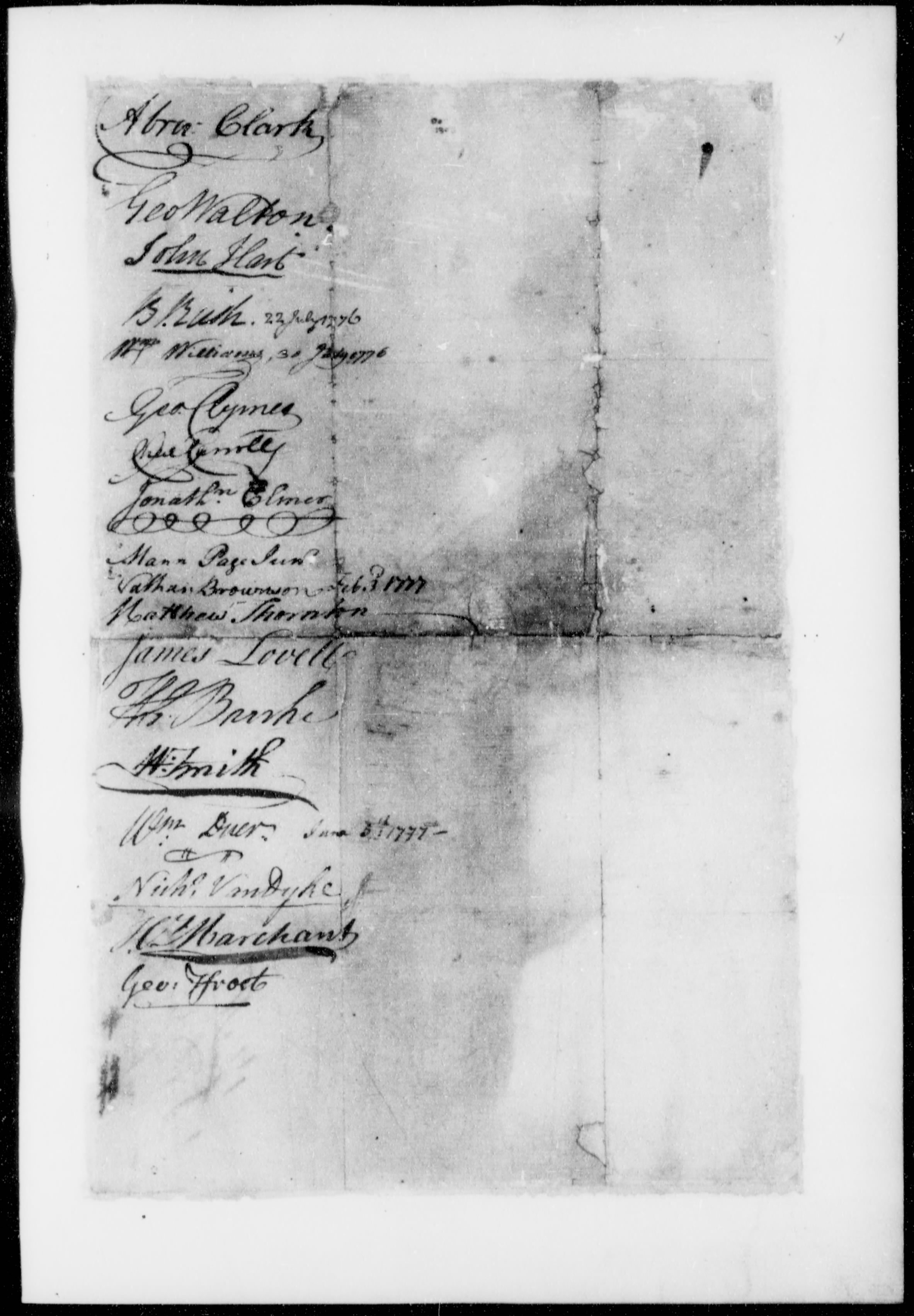
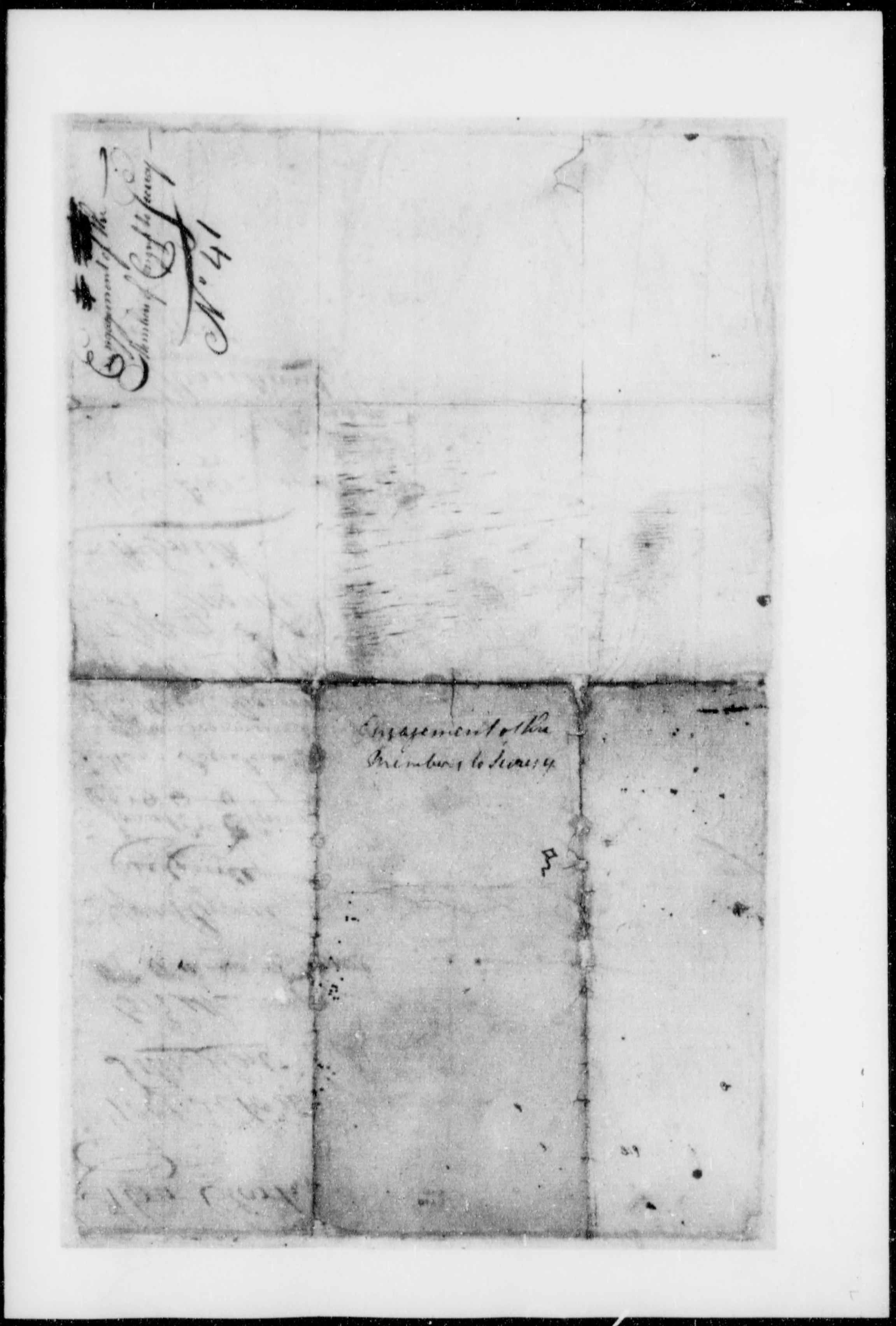
Abra: Clark
Geo Walton
John Hart
B Rush. 22 July 1776
Wm. Williams, 30 July 1776
Geo. Clymer
Chas. Carroll
Jonath.n Elmer
Mann Page Junr
Nathan Brownson Feb 3d 1777
Matthew Thornton
James Lovell
Tho. Burke
W: Smith
W:m Duer June 5:th 1777
Nich.s VanDyke
Hy Marchant
Geo: Frost
Facsimile of agreement
Facsimile reproduction of the "Agreement to Secrecy," November 9, 1775. In Peter Force's American Archives, 4th ser., vol. 3 (Washington, D.C.: M. St. Clair and Peter Force, 1840), between 1916 and 1917.
Facsimile reproduction of the "Agreement to Secrecy," November 9, 1775. In Peter Force's American Archives, 4th ser., vol. 3 (Washington, D.C.: M. St. Clair and Peter Force, 1840), between 1916 and 1917.
References
- ↑ Journals of the American Congress: from 1774 to 1788, vol. 1, From September 5, 1774, to December 31, 1776, Inclusive (Washington, D.C.: Way and Gideon, 1823), 7, 55.
- ↑ Edmund C. Burnett, ed., Letters of Members of the Continental Congress, vol. 1 August 29, 1774, to July 4, 1776 (Washington, D.C.: Carnegie Institution of Washington, 1921), 249. See also 255n2, for Adams' mentions of secrecy.
- ↑ Burnett, Letters, 255n2.
- ↑ Journals, 137.
- ↑ Burnett, Letters, 255n.
- ↑ John Adams, writing to James Warren on October 2, 1775, said: "Our Obligations of Secrecy are so braced up, that I must deny myself the Pleasure of Writing Particulars. Not because some Letters have been intercepted, for notwithstanding the Versification of them, they have done good, tho they have made some People grin." Burnett, Letters, 213-214.
External links
- Continental Congress: Agreement of Secrecy, 9 November 1775, Founders Online, National Archives.
- The Order of the Descendants of the Signers of the Secret Pact or Prior Declaration of Independence, at the Internet Archive.
